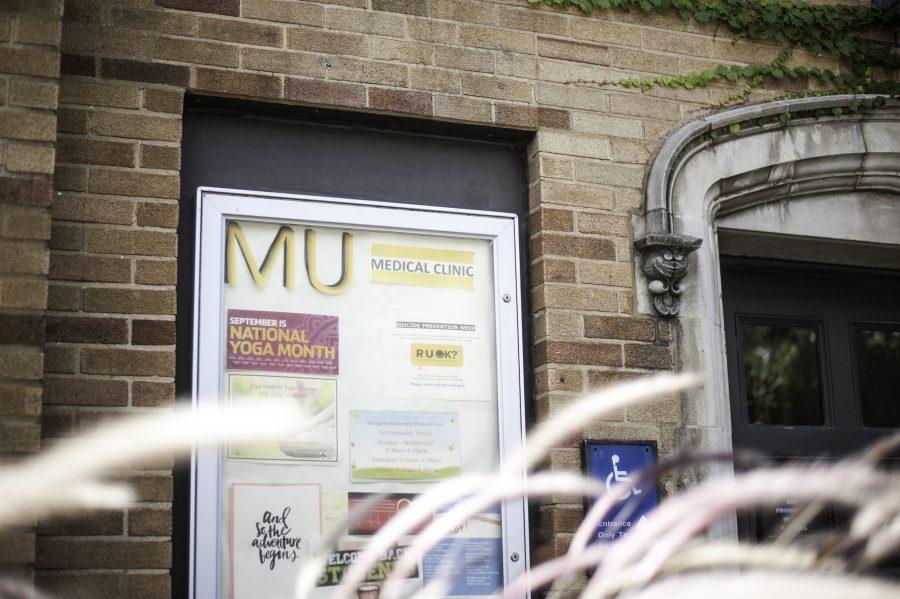Last week the Marquette Wire reported that a study published this summer by a data science startup, The State of Education, ranking Marquette as the nation’s least sexually healthy college campus, left out vital details.
The study highlighted the 10 best and worst campuses for sexual health in terms of sexual assault, STD rates and resources available for students. Marquette came in dead last.
However, this study was based on flawed metrics, and, even more important to note, it is nearly impossible to gauge sexual health on college campuses. Placing Marquette, or any university, on a list of best or worst sexually healthy or unhealthy college campuses overlooks the importance of dealing with sexual health by focusing on the individual. A university’s success in handling student sexual health cannot be measured quantitatively.
First, indicating that Marquette has an STD rate 203 percent higher than the national average is problematic. This number is the 2014 STD rate of the entire county of Milwaukee, not the university. The mere fact that university administrations have no knowledge of how many students have STDs should rule out the use of such numbers in a study like this in the first place.
Andrew Larson, the lead data scientist on the project, defended the study’s use of county STD rates in an email to the Wire, saying, “Colleges don’t report STD rates, so we used the most localized and trustworthy STD data,” and citing a Centers of Disease Control statistic that 15- to 24-year-olds account for 50 percent of new sexually transmitted infections each year. If this pinpoints anything, however, it’s that resource availability on college campuses should be the only means of judging sexual health. If STDs are in fact more prevalent on campuses, the means of dealing with them is far more important than comparing numbers.
The study also indicated Marquette’s sexual assault rate as 71 percent above the national average, but a number like this can never be completely accurate because of the inherent complexity of reporting sexual assault at universities. Colleges must annually provide the number of sexual assaults that occur on campus, but, due to complex laws and policies, that number does not include off-campus incidents, including those that occur in apartments that house mostly university students, and obviously leaves out the assaults that go unreported.
Furthermore, Marquette students who are victims of sexual assault and decide to seek professional help can take a number of different avenues in reporting the incident. They can file a criminal complaint with MUPD, talk to someone at the counseling center or seek medical help at the clinic, all of which address an individual’s needs based on his or her wants and feelings. Incidents reported at the counseling center and medical clinic, however, do not factor into the reported numbers, as they are considered confidential.
As a victim advocate at Marquette’s counseling center Katy Adler said, the conversation needs to be on available resources addressing individual needs, not statistics. If we can’t rely on the number of reported sexual assaults to be completely accurate, then campus sexual health should be defined by how the university cares for the victims. There is merit in conducting a study like The State of Education’s because numbers show trends and reveal areas of weakness and strength, but ranking universities as best and worst is neither fair nor accurately representative of the true state of a college’s sexual health.
In fact, Marquette’s ranking as one of the least sexually healthy universities may actually highlight its accomplishments in dealing with sexual health. Maybe our numbers are high because Marquette fosters an environment in which students feel comfortable enough to talk about sexual health, most notably sexual assault, freely and openly through university resources. Maybe our numbers are high because Marquette is honest in its reporting of these incidents in hopes of addressing the issue directly and finding real solutions to the problems.
Sexual health is similar to campus safety. Statistics will not make a student feel safe as they walk home at night, but blue light phones and strong police presence might. Numerical data can identify if policies and procedures are working, but they are not all-encompassing. A campus cannot be deemed sexually healthy or unhealthy on numbers alone, we must look at the support a university offers its students through resources like counseling and medical care. Sexual health is more than numbers. It’s about the feelings and needs of individual students, and that’s where our focus and efforts should always be.


